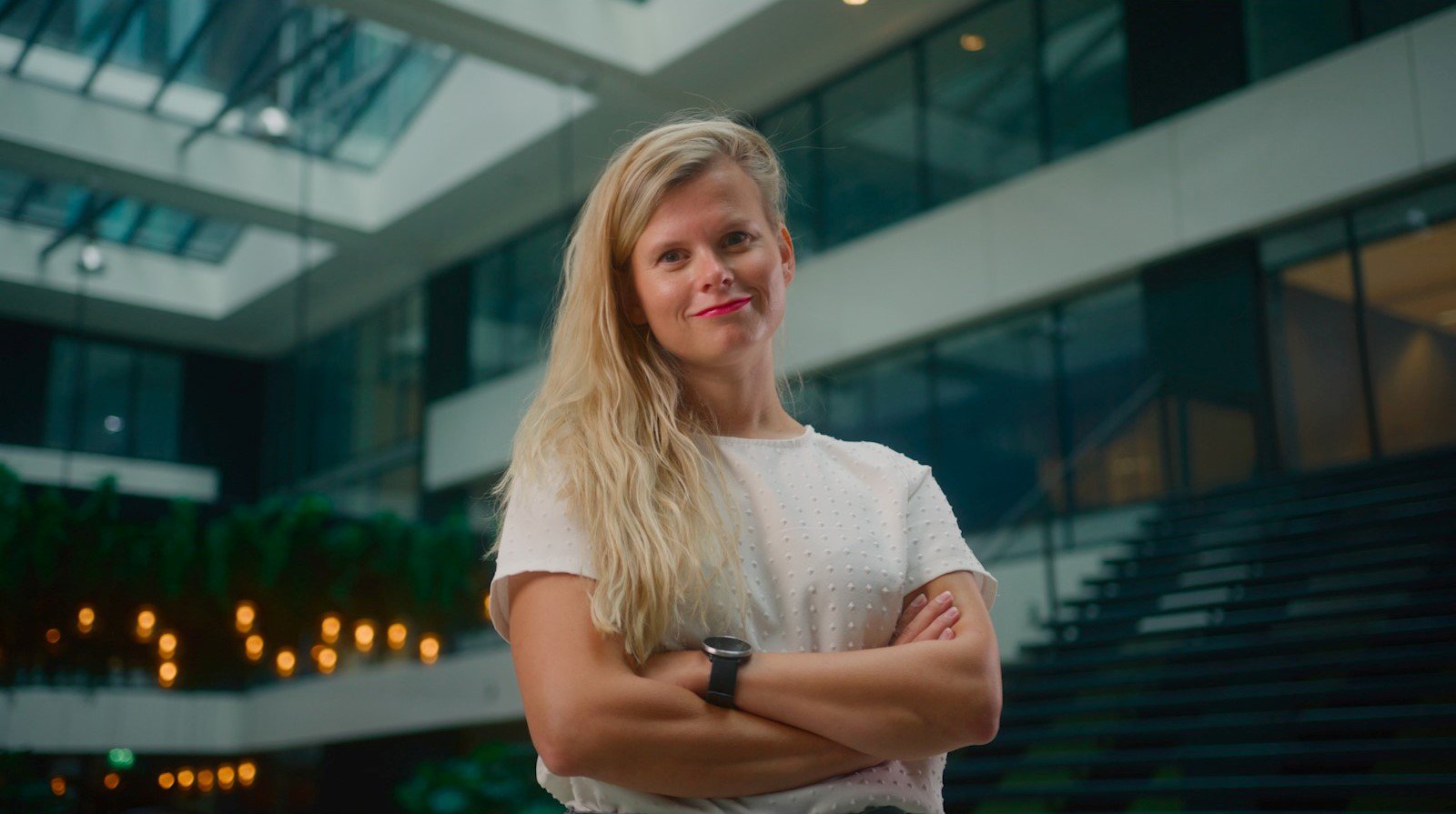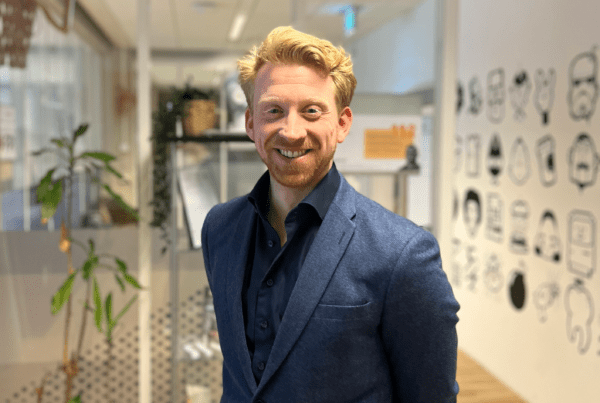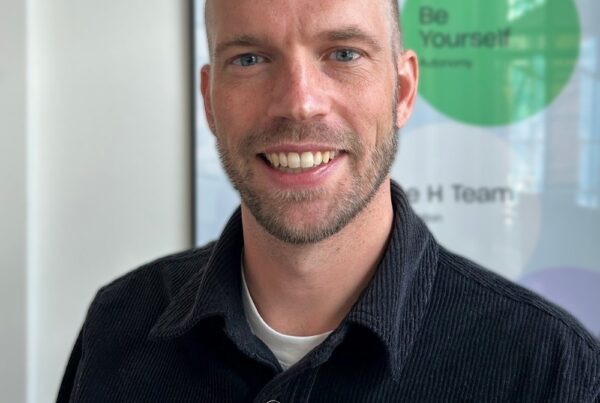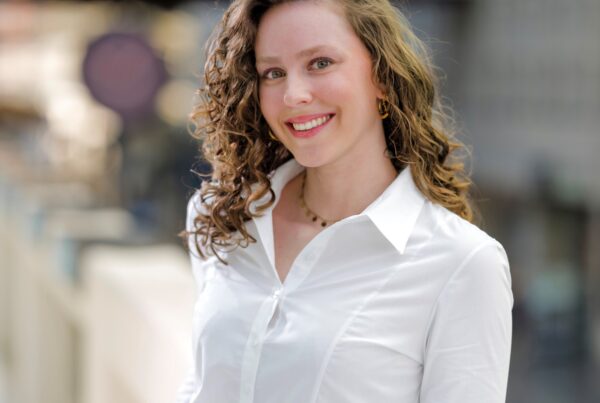Prevention and recovery: BioCheck uses innovative data-driven method for prevention and recovery of fatigue complaints
Rotterdam-based company BioCheck specializes in preventing and aiding the recovery of fatigue-related complaints, such as burnout, through a unique and innovative approach grounded in personal data. To learn more about BioCheck and its future ambitions, Rotterdam Square spoke with Desiree van der Gracht, Head of Innovation & Marketing.
Desiree van der Gracht, as Head of Innovation & Marketing at BioCheck, focuses on building the company’s medical pillar and the development of new hardware and software functionalities to enhance their services. BioCheck helps individuals prevent or recover from fatigue complaints caused by chronic stress, burnout, illness, and/or trauma. Their scientifically validated, data-driven approach integrates accessible software with an education platform. This method forms the foundation of BioCheck’s three training programs, where the level of guidance and education varies depending on the program. Together, these tools empower individuals to lead healthier, more energetic lives.
Prevention and recovery: a dual focus
“Many people experience long-term fatigue issues, such as burnout, often resulting in extended work absences, which is a significant burden for employers,” says Van der Gracht. “Our programs enable employees with burnout to recover, on average, 5.2 months faster. On the preventive side, we’ve achieved notable results, such as during the COVID pandemic at Erasmus MC, where healthcare workers faced extreme working conditions. On average our program reduces fatigue symptoms by 31.5% and improved resilience by 21% when used preventive. These are outcomes we’re incredibly proud of.”
BioCheck emphasizes the value of prevention for organizations aiming to ensure the vitality of their workforce. “Good employership means taking care of your people so they can continue to thrive in their roles. Prevention pays off, it only it requires strong leadership and organizational courage to prioritize this focus, as existing systems and entrenched dogmas remain heavily oriented toward curation and short-term outcomes,” she adds.
In addition, BioCheck’s programs, tools, and software are implemented by a network of 31 partners across the Netherlands, including physiotherapists and psychologists, enabling them to deliver the best possible support to their patients.
The story behind BioCheck
BioCheck was founded in 2015 by former Olympian Patrick van Luijk and former lung function analyst Stans van der Poel. Drawing on his experience as a top athlete, Van Luijk gained extensive knowledge about vitality, optimal training, and the importance of recovery. He understood that fitness isn’t just about how much weight you can lift but how well your body recovers.
Seeking a way to quantify recovery, Van Luijk partnered with Van der Poel, who had developed a method for using objective data to measure recovery processes. Combining their expertise in sports and medicine, they created BioCheck. Almost a decade later, the company has grown into a successful business offering proprietary training programs, unique software, and an app.
The four pillars of BioCheck’s approach
BioCheck’s method is grounded in four key pillars:
- Data
“Every participant begins with a physical intake, which establishes their personal data profile and serves as the foundation for their program,” explains Van der Gracht. “Daily morning measurements provide insights into ability to recover for that day, which is directly linked to the training protocol. This ensures participants never under- or overtrain but instead always train within their resilience. Unlike generic programs with fixed structures, our approach is entirely personalized. High-quality data is essential for this, and consumer devices like smartwatches or rings simply don’t provide the necessary precision.” - Training Programs
“Our training programs, grounded in personal data and a scientifically validated protocol, help optimize energy management. By improving the efficiency of energy transport within the body and balancing physiological processes, participants can steadily make progress.” - Breathing Exercises
“Chronic stress often leads to disrupted breathing patterns, depleting energy reserves and contributing to fatigue,” Van der Gracht notes. “Teaching participants how to ‘turn off their engine’ is a critical component of recovery, and we reinforce this through data-supported methods.” - Education
“Understanding the ‘why’ behind the exercises is crucial for creating lasting behavioral change,” explains Van der Gracht. “We cover everything from physiological processes and training techniques to psychological and behavioral insights, making education a cornerstone of our approach.”
New developments and future aspirations
BioCheck continually develops its programs to ensure the best service. Almost a year ago, they launched BioPsychology to increase their focus on mental health. “What you often see, specifically in relation to fatigue complaints and burnouts, is that psychology is the first step,” says Van der Gracht. “Sometimes there are situations or problems you want to discuss with a psychologist. But if your body is not in balance, you will not improve this by just talking. That is why we now offer BioPsychology alongside our other programs, providing individuals data-driven psychological support that can be seamlessly integrated into their BioCheck training program.”
Looking ahead, BioCheck plans to expand its services to support individuals across the entire care pathway, from hospital discharge to home recovery. “We’ve observed that fatigue complaints often arise after medical treatments or illnesses,” says Van der Gracht. “Healthcare professionals frequently ask if rehabilitation can begin earlier, before, during or shortly after the treatment process. We’re exploring solutions to address this need, enabling us to improve outcomes for patients and healthcare providers alike.”
Get in touch
BioCheck is located at the Prinsenlaan metro stop, near Rotterdam Alexander train station. “If you’re a medical professional or physiotherapist who recognizes the value of data-driven and early rehabilitation, we’d love to hear from you. Let’s explore how we can work together to improve outcomes.” To learn more about BioCheck, please visit their website at www.biocheck.nl or follow their journey on LinkedIn.
Date: December 17, 2024




